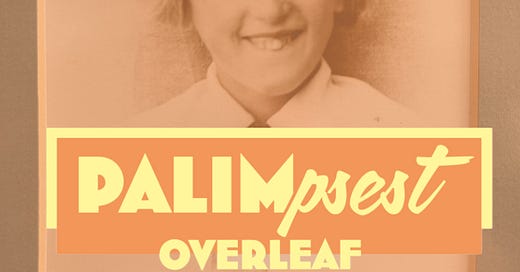My mother turned sixty last September, on the sixteenth. My parents were
both born on the sixteenth of their respective months but for some reason
growing up I was convinced that my mother was born on the fourteenth.
Every year I would get it wrong. Last September, on the fourteenth, two
days before my mother’s birthday, I asked her what her thoughts were
leading up to her sixtieth birthday, if she had any words of wisdom for her
daughter in her twenties.
“To be happy,” she said. Not so helpful, I thought. I asked her then if
she could give one piece of advice on life to me, or anyone, what would it
be?
“Life cannot be condensed to one word or sentence,” she said. Again,
not so helpful I thought.
My mother has never been afraid of ageing, unlike my father who
would spend money he didn’t really have on collagen serums and
expensive facewash, for men, of course. My mother wore the greying of
her blonde hair like highlights of a good life lived, and accredited the folds
in her skin to the range of emotions she has been able to experience,
nothing to be ashamed of.
“One thing that I have been thinking about,” my mother interrupted the
silence, “is that I will be turning the age that my mother was when she
died.”
“Yeah,” I responded, and we sat in this for some time. I never met my
mother’s mother, which is why she has always been called my mother’s
mother and not Nan, or Gran, or Grandmother. I’ve seen pictures and have
always been told that I look like her, though she was still only my mother’s
mother. Always with that degree of separation in physicality and in
language.
“I always associated being sixty with being unwell and decrepit,” she
paused. “Old,” my mother added.
As a child, when my mother would talk about losing her mother in her
early twenties, I always thought that she was old. I never thought of my
mother as a confused child losing her support system, losing the answers to
all her questions, her back up, her leader, her best friend. To that younger
version of myself, my mother was an established adult losing her mother as
everyone will at some stage in their life.
And now my mother has turned sixty and she is neither unwell,
decrepit, or old. The version of sixty that my mother has created for me is
undeniably hardworking and passionate and unfalteringly stubborn to
complete everything that she sets out to complete, and to a standard higher
than anyone else. Not that completing something to a higher standard than
others is her intention, she just does. My mother’s version of sixty is
saying no to nothing, wearing those grey hairs and wrinkles with pride, and
yearning for grandchildren because caring for others is her passion.
My version of twenty-something would be devastated if I lost my
mother at sixty. It would be losing someone full of life who would have so
much more to give and experience, and I would not be an established adult
I would be merely faking it and hoping that I was doing it right, or at least
okay. And I would be losing the brightest and kindest support system I
could ask for; I would be losing my best friend.
It’s funny how perspectives of age change as one grows, and how ideas
of people are so different than who they actually are. I’ve never asked my
mother what it was like to navigate the transition into adulthood without
parents, or whether she felt like she had to fake it, or what her version of
being in her twenties was like and how different it was to mine. A big
difference is that mine is not parent-less, I guess.
Being twenty-something is being unsure, in love, loveless, happy,
sad, supported, unsupported, confused. And perhaps being sixty is no
different, but I won’t know until I am because just like my mother’s sixty
is different to her mother’s sixty, and my twenty-something is different to
my mother’s twenty-something, when I turn sixty, I will probably think of
my mother and how different my perception of her is to how I perceive
myself.
“I don’t think that you’re old,” I assured my mother, and she laughed
her hearty laugh which is one of the only expressions that still holds a firm
grip on the meaty Wirral accent. I’m not sure how a laugh can portray an
accent but hers does.
“That’s good,” she responded, “I don’t feel it.” We sat in the dulled
light of the living room over a glass of wine as is religiously done after
returning from a shift, two days before my mother’s sixtieth birthday.




